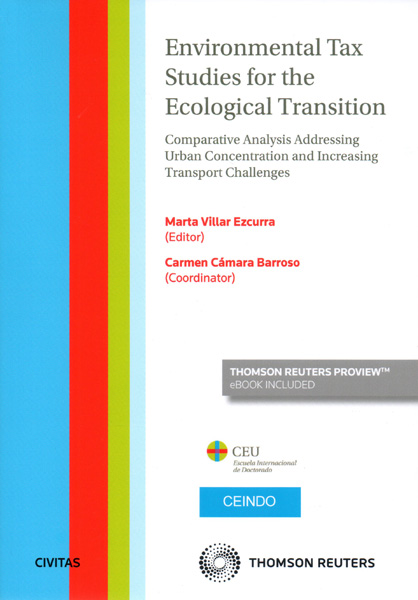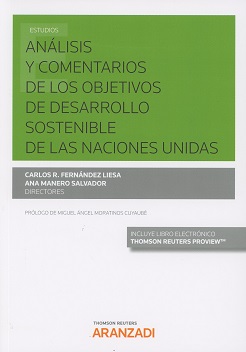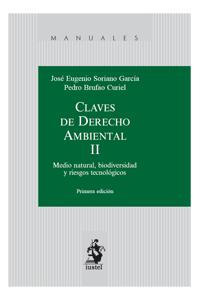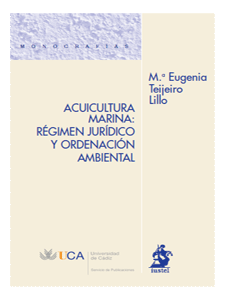Environmental tax studies for the ecological Transition
La obra recoge un conjunto de trabajos sobre fiscalidad medioambiental y sobre otros instrumentos económicos para hacer frente a los desafíos de las politicas medioambientales y de cambio climático actuales, escritos por autores españoles y de diversos países, muchos de los cuales se centran en la tributación del transporte y en los instrumentos fiscales utilizados para abordar los problemas de la actual concentración poblacional en los núcleos urbanos.
CARACTERÍSTICAS
Trabajos sobre experiencias y problemas en distintos países para abordar con instrumentos fiscales los desafíos actuales de las políticas de medioambiente.
Selección de trabajos tras procedimiento de revisión por pares.
NOVEDADES
1ª y única edición
Energy Transition and the green economy are considered key issues at the political and legal level all around the world, not only today but for the foreseeable future. The transformations needed to achieve this have just begun, and the technological and behavioral changes this requires is likely to impact most aspects of our day to day lives.
Environmental Tax Studies for the Ecological Transition provides a wide selection of papers presented at the 19th Global Conference on Environmental Taxation under the topic “Environmental Tax Challenges in the 21st Century: Urban Concentration and Increasing Transport”. In particular, in this very timely volume, the articles discuss different aspects of environmental taxes and other economic instruments in the context of the “ecological transition”, a topic of great interest for the scientific community and society as a whole.
The book, divided into five parts, contains a range of original studies written by scholars and professionals working worldwide in the field of environmental taxation. Economic Instruments and Energy Transition, Smart Cities and Urban Perspectives, Air Pollution and the Transport Sector, Energy Taxation and Governance and Challenging Issues are some of the topics addressed in the study.
In short, this book is meant to be a practical and helpful guide for researchers and practitioners interested in the theoretical and practical aspects of environmental issues from a fiscal point of view.
Suggested citation: “Environmental Tax Studies for the Ecological Transition. Comparative Analysis Addressing Urban Concentration and Increasing Transport Challenges”. MARTA VILLAR (EDITOR), CARMEN CÁMARA (COORDINATOR). Thomson Reuters/Civitas, 2019.
Introduction and overview
1. Unsettling the balance of power
Many failures led to the crisis
The waning grip of the G7
The upheaval in the (relative) wealth of nations
The need for international cooperation
The serendipitous G20
No finger-pointing in Washington
Conclusions
2. Success and failures of the G20
The crowning of the G20 as the world-saver
Revamping macroeconomic coordination
The old issues of international coordination confront the G20
Overhauling the international financial architecture?
Cannes (and Los Cabos) hijacked by the European crisis
Russia and the overbearing return of high politics
The BRIC(S) and the G20
Conclusions
3. The reform of the International Monetary Fund
IFIs, their shareholders, and global governance: a multifaceted interaction
The withering of IFIs
Palingenesis
The (latest) IMF quota reform
The Seoul package and its implementation
There is more to influence than quotas
Paradigm regained: the persistence of the Washington orthodoxy
Conclusions
4. Multilateral Development Banks in fashion again
The birth of the MDB business model
More development (and more MDBs) in global architecture
Defending and enriching the mainstream view of development
More than affordable finance
Malaise and revival of the MDBs
The reform of the MDBs
The brand new MDBs
Evergreen tensions and dilemmas
Conclusions
5. Re-regulating finance
The international standards regime and the creation of the FSF
What’s in a letter? From the FSF to the FSB
The daunting tasks of the FSB
Halfway, half-empty, half-hearted, yet significant
Rule-taking behavior
The exorbitant persistence
Conclusions
6. Europe and global governance
The long tradition of punching below one’s weight
Missing a crucial opportunity: the G20
Missing a crucial opportunity: the IMF
The IMF and the European crisis
Three misconceptions
The European decision-making process does not help
The decline is not inevitable
A more effective Europe is also good for the world
Conclusions
References
Index
Santiago Niño-Becerra Barcelona 1951. Es doctor en Economía y uno de los especialistas en su campo más conocidos de España, gracias a su frecuente participación como comentarista en numerosos medios. Hasta 1991 trabajó en el mundo empresarial, sobre todo en el sector siderúrgico. Luego se consagró a la enseñanza.
Es catedrático de Estructura Económica de la IQS School of Management (Universidad Ramón Llull) y autor de varios libros centrados siempre en el mundo de la economía, y con ventas que superan los 150.000 ejemplares.
Su nuevo libro, “El crash. Tercera fase”, supone el cierre de lo que ahora constituye una tetralogía.








